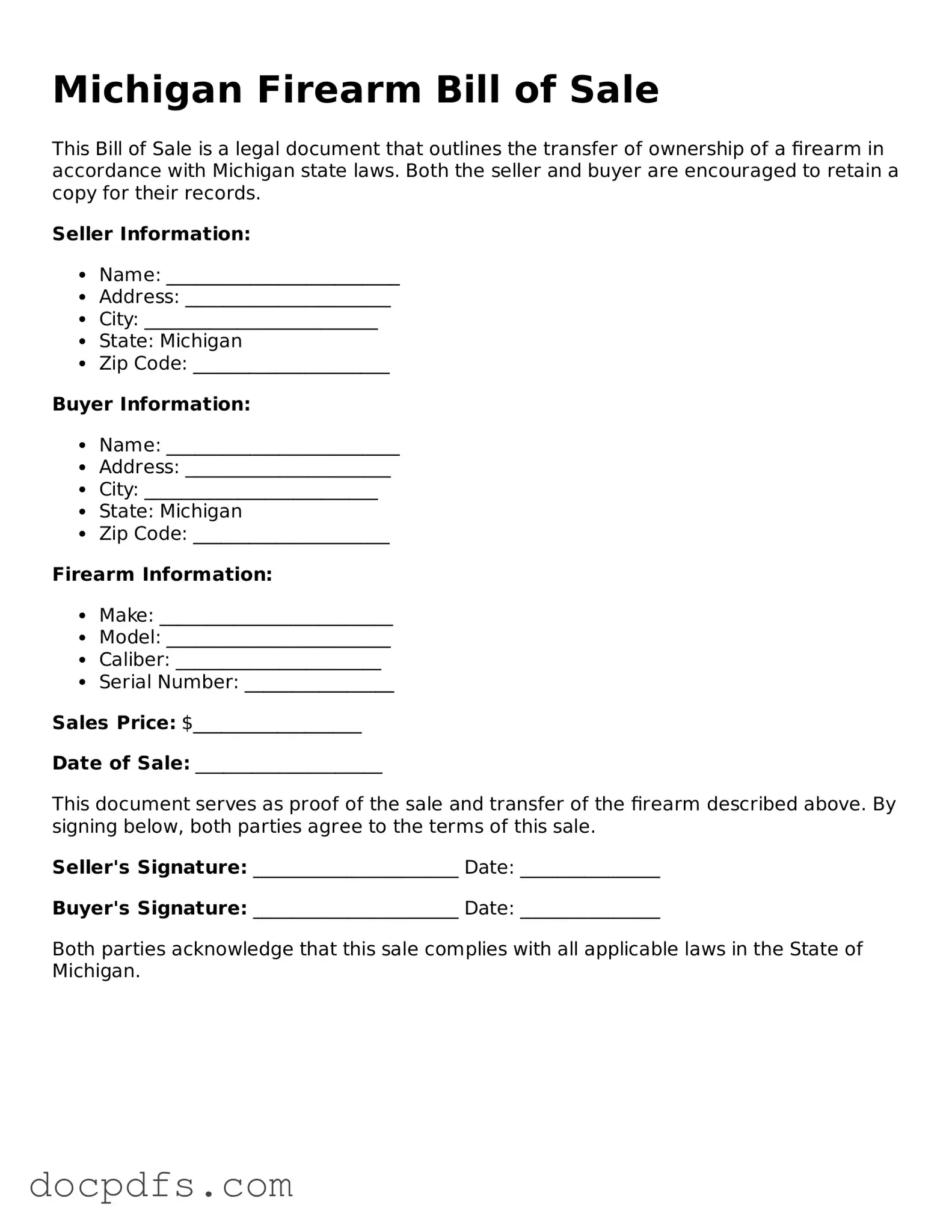Free Michigan Firearm Bill of Sale Form
The Michigan Firearm Bill of Sale form is a legal document used to record the sale and transfer of firearms between private parties in Michigan. This form helps ensure that both the buyer and seller have a clear understanding of the transaction and protects their rights. Understanding its importance can help facilitate a smooth and lawful exchange of firearms.
Open Firearm Bill of Sale Editor Now

Free Michigan Firearm Bill of Sale Form
Open Firearm Bill of Sale Editor Now

Open Firearm Bill of Sale Editor Now
or
⇓ Firearm Bill of Sale
Finish this form the fast way
Complete Firearm Bill of Sale online with a smooth editing experience.